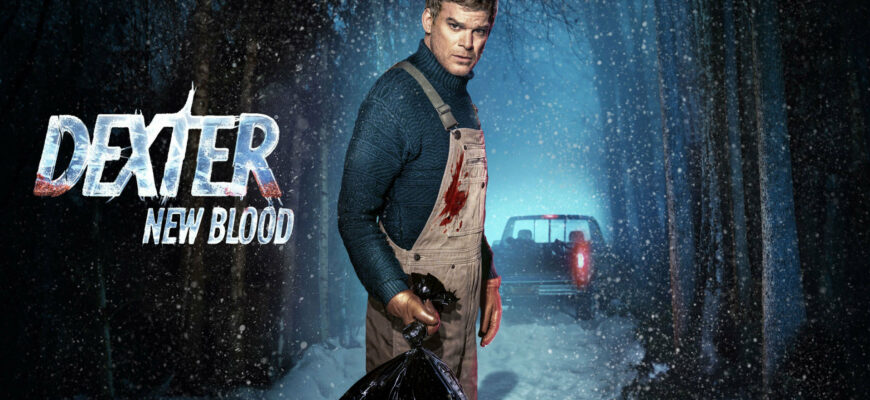Television`s most infamous vigilante makes yet another surprising return to the screen.

In a television landscape seemingly obsessed with resurrecting beloved, or perhaps long-deceased, franchises, the news of another return for everyone`s favorite forensic blood-spatter analyst by day, vigilante serial killer by night, Dexter Morgan, might induce a wry smile. Dubbed “Dexter: Resurrection,” this new season arrives after a 2021 revival, “Dexter: New Blood,” that left many fans feeling less than satisfied, and indeed, rather conclusive. Yet, much like its titular character`s uncanny ability to defy the definitive, Dexter is reportedly back, and this time, with a vengeance that promises a potent blend of black comedy and a delightfully unhinged detective narrative.
The Persistent Pulse of a Killer
For those unfamiliar with the premise, or perhaps those who`ve simply forgotten the precise details amidst two decades of complex anti-heroes, Dexter Morgan (portrayed with unsettling charisma by Michael C. Hall) is a man of dual vocations. By day, he aids the Miami Metro Police Department in solving gruesome murders; by night, he meticulously executes those criminals who have evaded justice, guided by a strict moral code inherited from his adoptive father. The original series, which premiered in 2006, captivated audiences, earning numerous accolades as one of the definitive shows of its era. However, as narratives grew increasingly complex and the television golden age truly dawned with behemoths like “Game of Thrones,” “Dexter” eventually succumbed to narrative exhaustion, concluding in 2013 on a note that felt, to many, rather uninspired.
A Bloodline That Won`t Stay Buried
The 2021 sequel, “Dexter: New Blood,” was pitched as a second chance, an opportunity to provide a more fitting closure. It saw Dexter living a quiet, unassuming life, attempting to suppress his “Dark Passenger.” The season culminated in a rather shocking and divisive finale that, for all intents and purposes, seemed to definitively close the book on Dexter Morgan. Or so we thought. The announcement of “Dexter: Resurrection” suggests that a “definitive end” in television, much like a serial killer`s victim count, is merely a suggestion until further notice.
“After a contentious finale and a mixed revival, `Dexter` is back with `Resurrection.` Discover how Michael C. Hall`s iconic serial killer is embracing his dark passenger once more…”
Embracing the Inner Darkness
What sets “Dexter: Resurrection” apart, according to early whispers, is its bold decision to shed the introspective angst of its immediate predecessor. No longer is Dexter agonizing over his murderous compulsions; he`s seemingly undergone a rehabilitation of a different sort, emerging invigorated and ready to dispense his unique brand of justice in New York City. The series is described as leaning heavily into its roots as a black comedy and trash-detective story, a welcome pivot for fans who yearned for the unapologetic and darkly humorous tone of earlier seasons. Adding a new layer of complexity, Dexter is now tasked with guiding his son, Harrison, who has apparently inherited his father`s less-than-conventional tendencies but, as any nascent vigilante would, struggles with the nuances of evidence disposal. It seems the apple, or perhaps the blood-splatter, doesn`t fall far from the tree.
A Stellar Cast and Unapologetic Sound
The return of Michael C. Hall is, of course, the bedrock of any “Dexter” revival; his portrayal of the conflicted killer remains a career-defining achievement. Adding considerable gravitas and star power to this new iteration are celebrated talents like Uma Thurman and Peter Dinklage, whose appearances promise to elevate the already high stakes. Coupled with a soundtrack featuring the raw energy of bands like Ramones and Black Sabbath, the series appears to be confidently embracing its gritty, no-holds-barred identity. It`s a clear signal that “Resurrection” isn`t attempting to reinvent the wheel, but rather to perfect its spin for a dedicated fanbase.
The Genre`s Enduring Allure
The initial run of “Dexter” was groundbreaking. Before its debut, the exploration of serial killer narratives was largely confined to cinema, with iconic films like “The Silence of the Lambs” and “American Psycho” setting the standard. Dexter bravely brought buckets of blood and tons of cynicism to the small screen, generating considerable controversy but ultimately paving the way for a new wave of dark, character-driven thrillers. Its influence can be seen in the subsequent rise of shows like “American Horror Story” and the current ubiquity of true-crime documentaries and fictionalized thrillers across streaming platforms. In an era where audiences are increasingly fascinated by the darker corners of the human psyche, Dexter`s particular brand of “justice” remains a compelling draw.
Unlike some contemporary dramas that grapple with navigating the complex currents of modern ethics or studio pressures, “Dexter: Resurrection” seems to exist in a space of creative liberation. It’s a show that has, quite literally, survived its own death, proving its enduring appeal. While some viewers may find themselves seeking the comfort of a romantic comedy after an episode, it’s clear that the appetite for Dexter`s unique brand of moral ambiguity is far from satiated. The dark passenger, it seems, always finds a way back.








